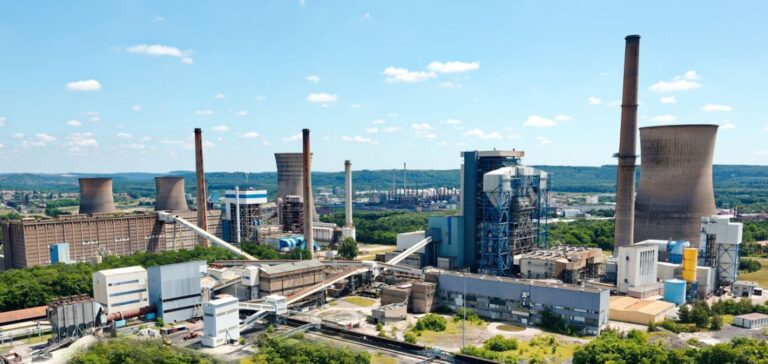The Emile-Huchet coal-fired power plant in Saint-Avold, Moselle, is the focus of growing concern among its employees and union representatives. This concern even led to a blockade of the plant by some of its employees. This concern stems from a series of complex factors, including the current political context marked by early parliamentary elections, and the uncertainty surrounding two major projects: biomass conversion and hydrogen production.
Political issues
At a recent meeting at Bercy, Thomas About, CFDT delegate, expressed the difficulties encountered. The political climate, with parliamentary elections underway, complicates discussions and decision-making. However, a schedule of tripartite meetings between the State, the company and the social partners has been drawn up. This dialogue also includes the General Directorate for Energy and Climate, a permanent body, whatever the government in power.
Projects on hold
Plans to convert the coal-fired power plant to biomass, as promised by Emmanuel Macron, and to produce hydrogen are currently on hold. Concern among employees is growing, accentuated by the announcement of the dissolution of the National Assembly. David George, CFDT representative, highlights the government’s inability to provide concrete answers, leaving workers in prolonged uncertainty.
Employee actions
In response to this situation, employees have initiated visibility actions, such as filtering the traffic circle near the plant and generating black smoke that has been visible for over a week. These measures are intended to draw the attention of the government and GazelEnergie management to the urgency of the situation and the need for swift decisions to guarantee the future of our employees.
Economic and social outlook
The unions asked the shareholder to guarantee jobs until 2028, stressing the importance of business continuity for the region. Industry Minister Roland Lescure’s office described the meeting as “constructive”, saying that the CFDT and the government are aligned on the objective of phasing out coal, while ensuring the continuity of activity and accelerating the reindustrialization of Moselle.
The uncertainty surrounding the future of the Saint-Avold coal-fired power plant reflects complex political and economic issues. Coordination between the various players, rapid implementation of conversion projects and support for employees will be essential to stabilize the situation. Management, unions and government must work together to ensure a fair and sustainable energy transition.






















